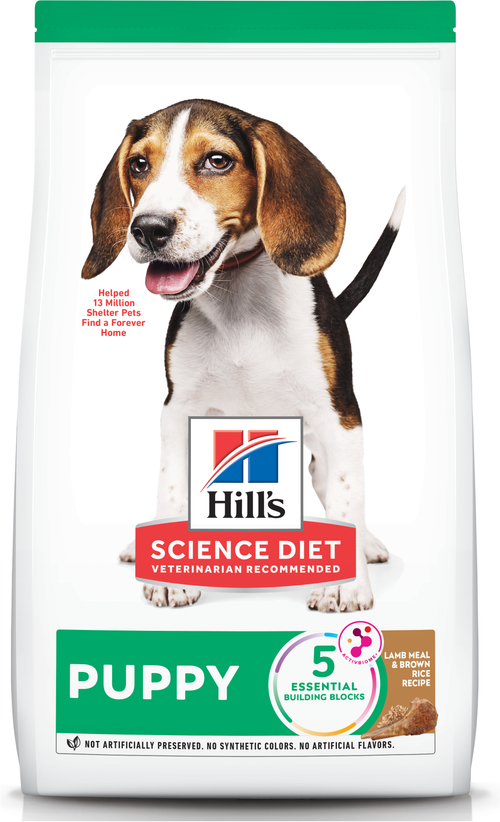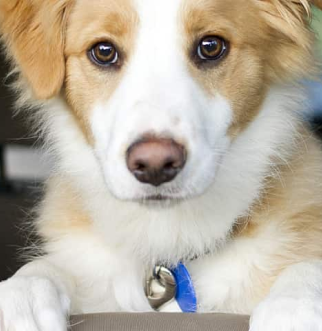
-
Find the right food for your petTake this quiz to see which food may be the best for your furry friend.Find the right food for your petTake this quiz to see which food may be the best for your furry friend.Featured products
 Puppy Lamb Meal & Brown Rice Recipe
Puppy Lamb Meal & Brown Rice RecipeVital nutrients to support 5 essential building blocks for lifelong health
Shop Now Hill's Science Diet Adult 7+ Senior Vitality Small & Mini Chicken & Rice Recipe Dog Food
Hill's Science Diet Adult 7+ Senior Vitality Small & Mini Chicken & Rice Recipe Dog FoodImproves everyday ability to get up & go
Shop Now Puppy Large Breed Chicken & Brown Rice Recipe
Puppy Large Breed Chicken & Brown Rice RecipeVital nutrients to support 5 essential building blocks for lifelong health
Shop NowFeatured products Adult Indoor Chicken Recipe Cat Food
Adult Indoor Chicken Recipe Cat FoodSupports energy level and beautiful fur in indoor cats
Shop Now Adult Sensitive Stomach & Skin Cat Food
Adult Sensitive Stomach & Skin Cat FoodHighly digestible food that is gentle on the stomach. Nourishes skin & promotes lustrous fur.
Shop Now Adult 7+ Chicken Recipe Cat Food
Adult 7+ Chicken Recipe Cat FoodSupports energy level and beautiful fur in mature cats
Shop Now -
Dog
- Dog Tips & Articles
-
Health Category
- Weight
- Food & Environmental Sensitivities
- Urinary
- Digestive
- Joint
- Kidney
-
Life Stage
- Puppy Nutrition
- Adult Nutrition
Cat- Cat Tips & Articles
-
Health Category
- Weight
- Skin & Food Sensitivities
- Urinary
- Digestive
- Kidney
-
Life Stage
- Adult Nutrition
Featured articles Water
WaterDiscover why water is the most important nutrient for your dog or cat to live a healthy life. Find out how much water your pet should consume each day.
Read More Pet Food Storage Tips
Pet Food Storage TipsDiscover how and where to store your dry, as well as canned, dog and cat food. Learn how to find the "best before" dates on all Hill's pet food packaging.
Read More The Incredible Science Behind Your Pet's Microbiome
The Incredible Science Behind Your Pet's MicrobiomeLearn what a pet's microbiome is, how it contributes to your pet's gut & overall health, and why nutrition is important in maintaining healthy microbiomes.
Read More -


You may want a dog, but are concerned about your allergies or those of a family member. Or you may have a dog and know that your allergy is a problem. The good news is that dogs and people with allergies can live together.
What causes allergies from dogs?
Allergies are caused by a reaction to certain proteins found primarily in oil secretions from a dog’s skin and in a dog’s saliva. It is not hair itself that causes allergies. When your dog sheds hair or its skin flakes, proteins are carried into the environment where they may cause an allergic reaction.
Are there hypoallergenic dogs?
Contrary to what you may have heard, "hypoallergenic" dogs do not exist. It is suggested that the hair of some breeds (such as the Poodle and Bichon Frise) helps prevent more allergens getting into the environment, but many report just as strong a reaction to these dogs. A small dog may provoke less allergic reaction than a larger one simply because he has less skin and hair to shed.


Tasty Tips
We believe that science is the best path to giving your pet the best care possible.
Employ diligence in the home to limit allergies:
- Wipe smooth surfaces in the home regularly and vacuum frequently.
- Frequently wash any bedding that your dog sleeps on.
- Possibly restrict access to certain areas of the house. The allergic person’s bedroom is a definite no-dog zone.
- Hard floors retain fewer allergens and are easier to clean than carpet.
- If you have only a few rooms in your house with carpet, you probably should keep your dog out of those.
- Upholstered furniture will retain a lot of allergens. You may choose to keep dogs off this furniture or not allow access to those rooms.

The good news is that dogs and people with allergies can live together.
Brushing is key to controlling allergies
Providing the best dog care includes weekly brushing. This will be extremely helpful in reducing allergic reactions because it helps prevent loose hair from getting into the air. Groom more often in springtime when your dog sheds its winter coat. Also, whenever possible, grooming should be handled by someone who isn’t allergic to dogs. It should be done outdoors, too. Also consider buying Science Diet dog food with precise nutrition for a healthy coat.
Ask your own physician about the possibility of prescribing anti-allergenic drugs or ask for suggestions to manage the problem.
Related Articles



See what Vets have to say
Read reviews from the experts and see why Hill's is the #1 Veterinarian Recommended brand.
See what Vets have to say
Read reviews from the experts and see why Hill's is the #1 Veterinarian Recommended brand.



